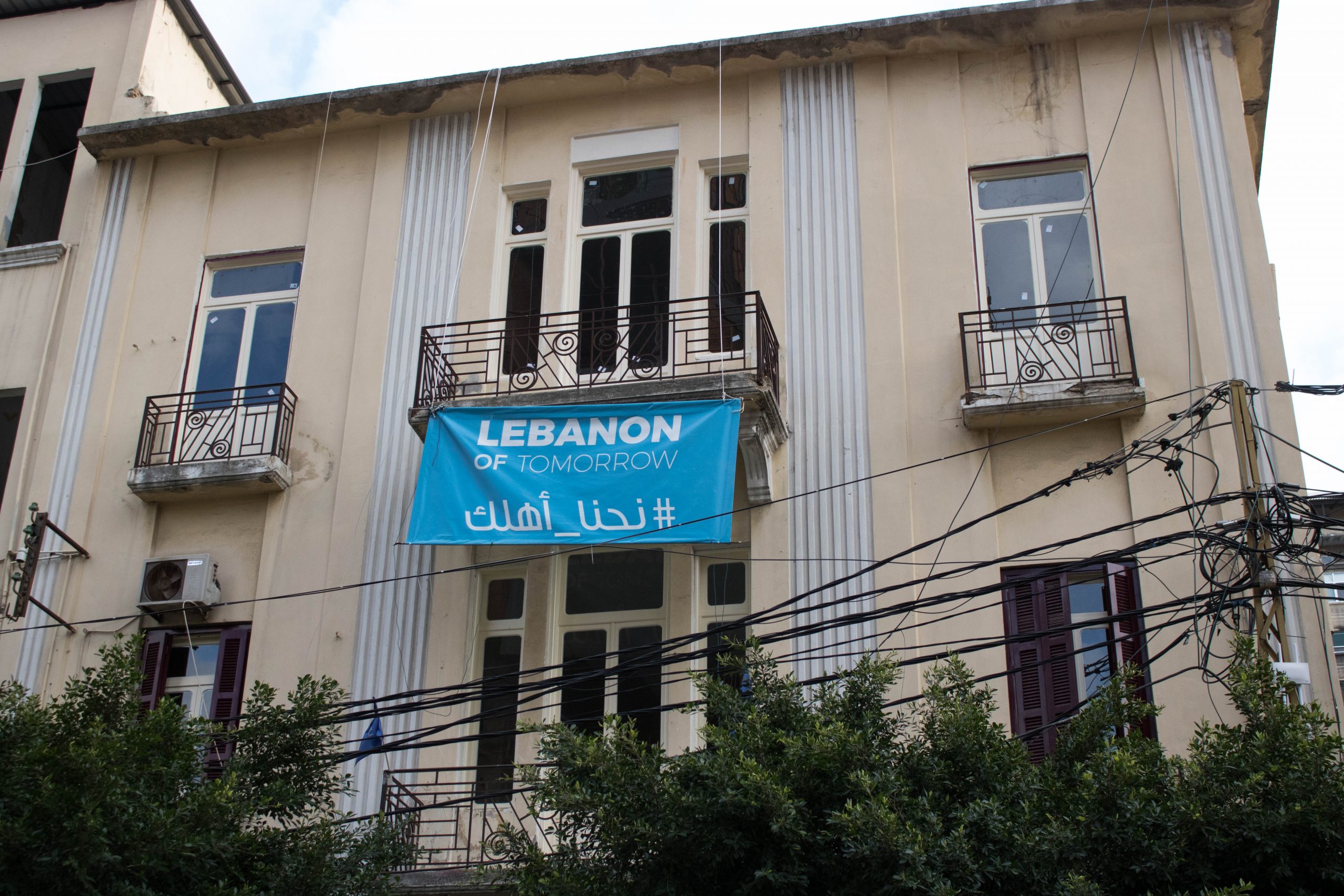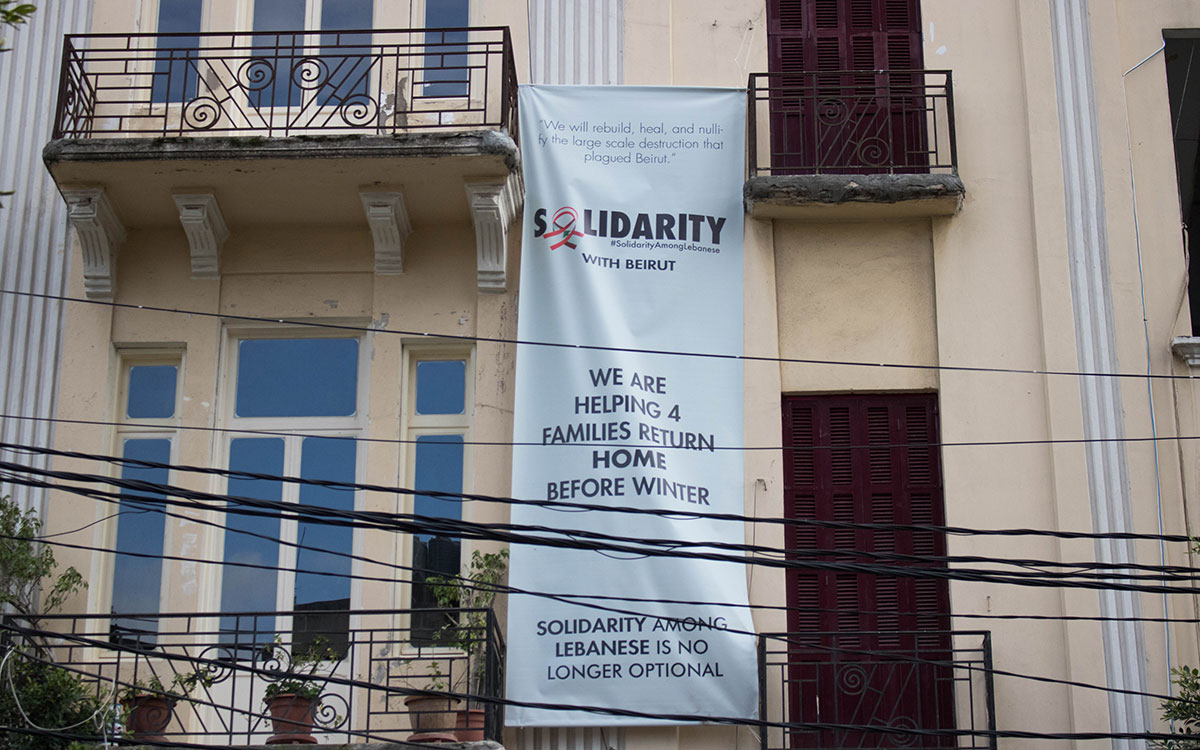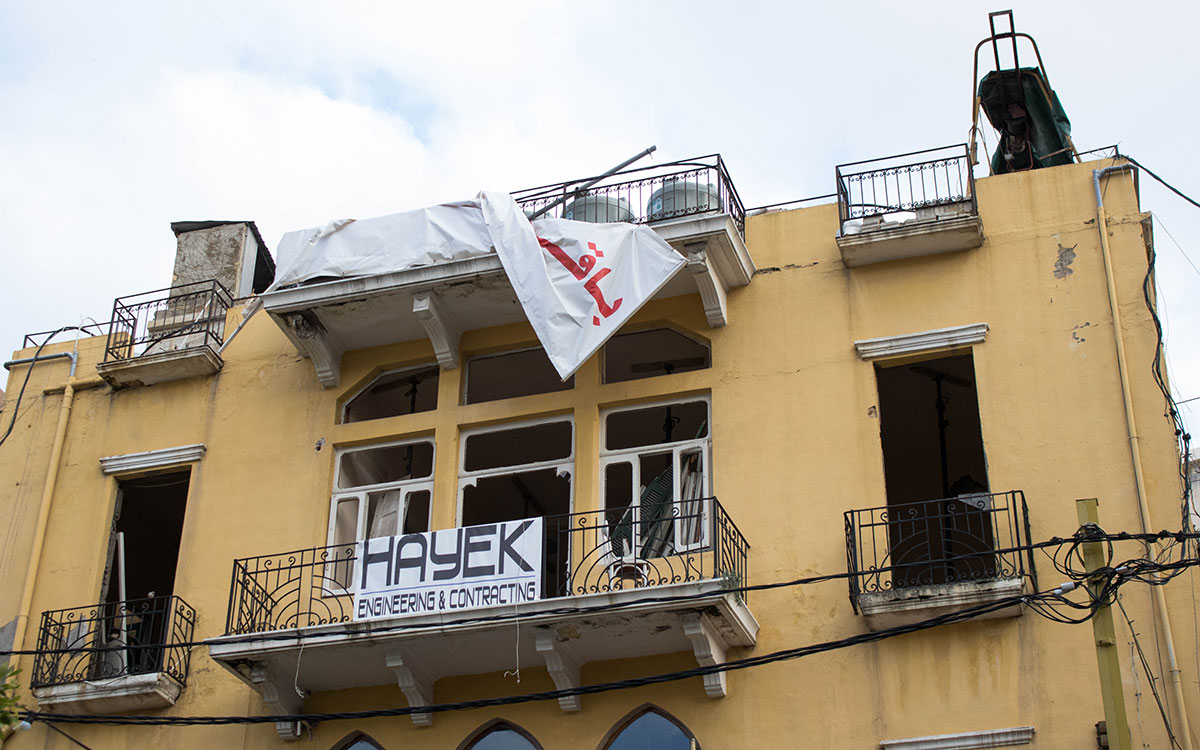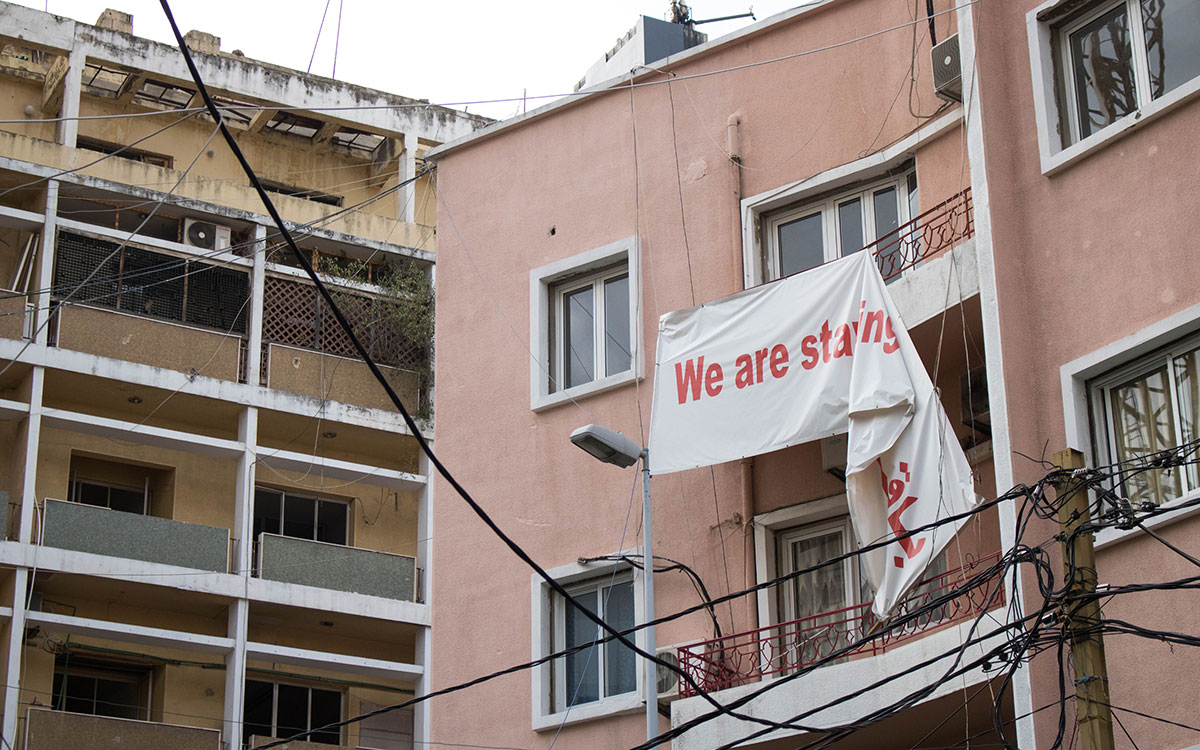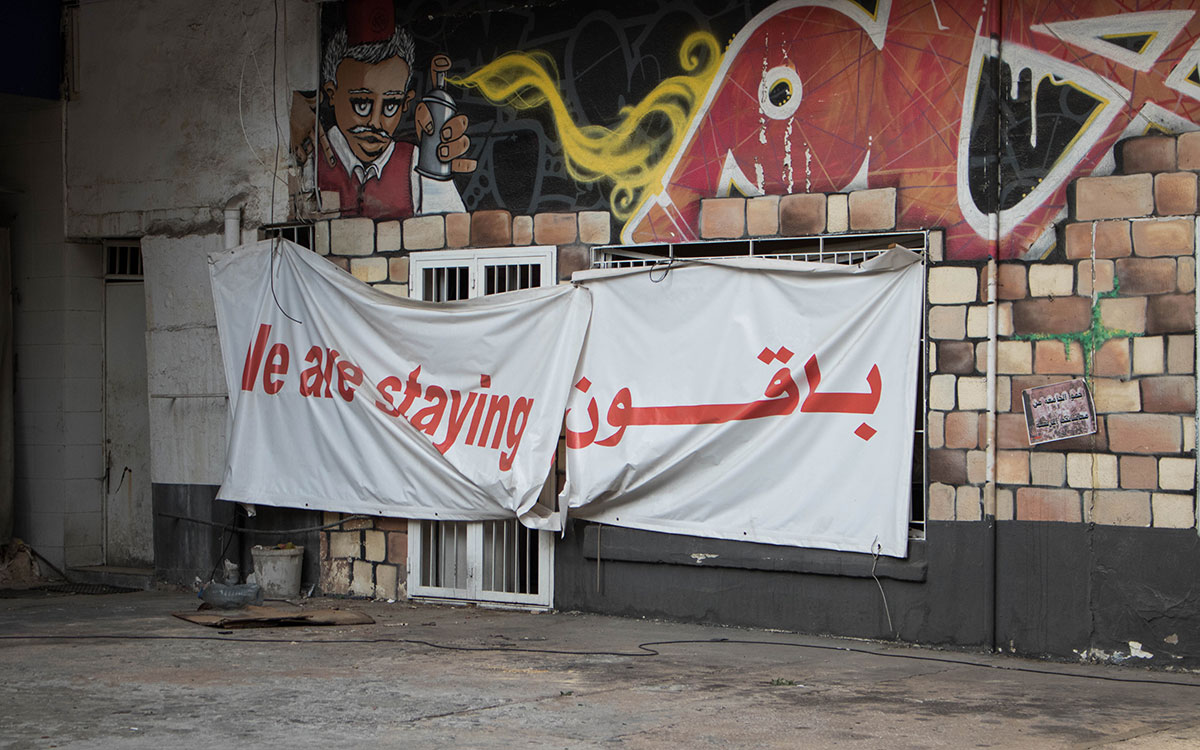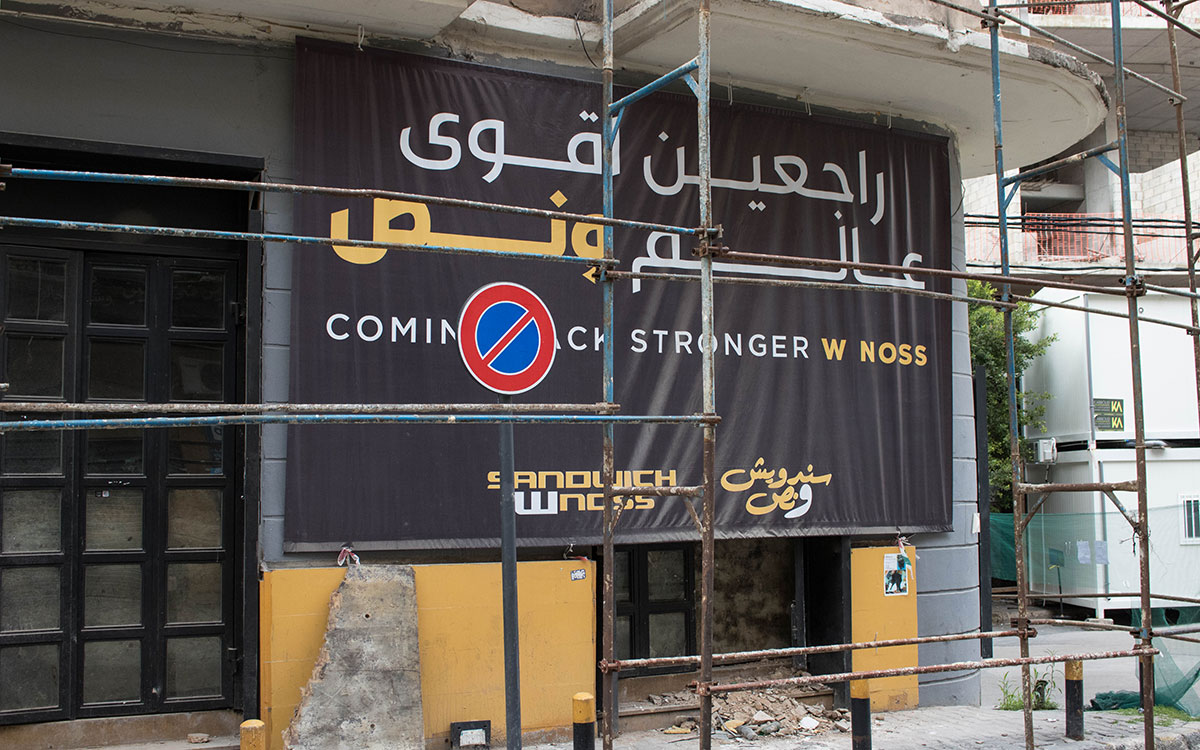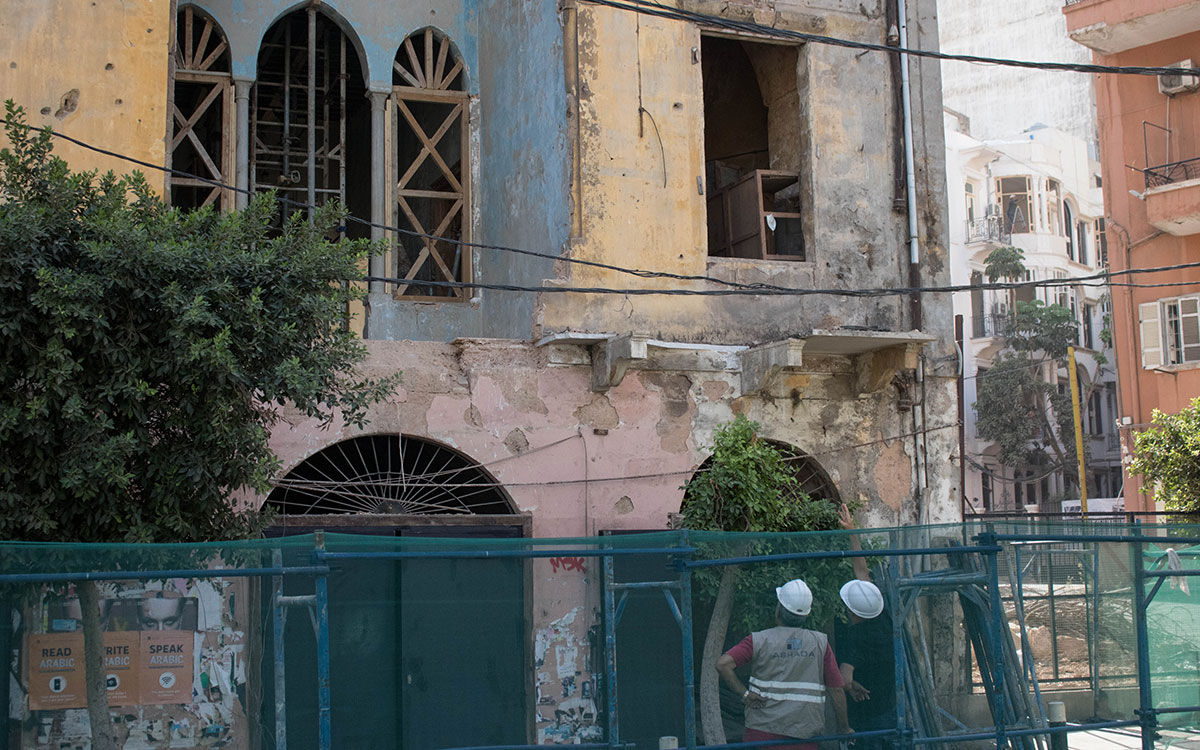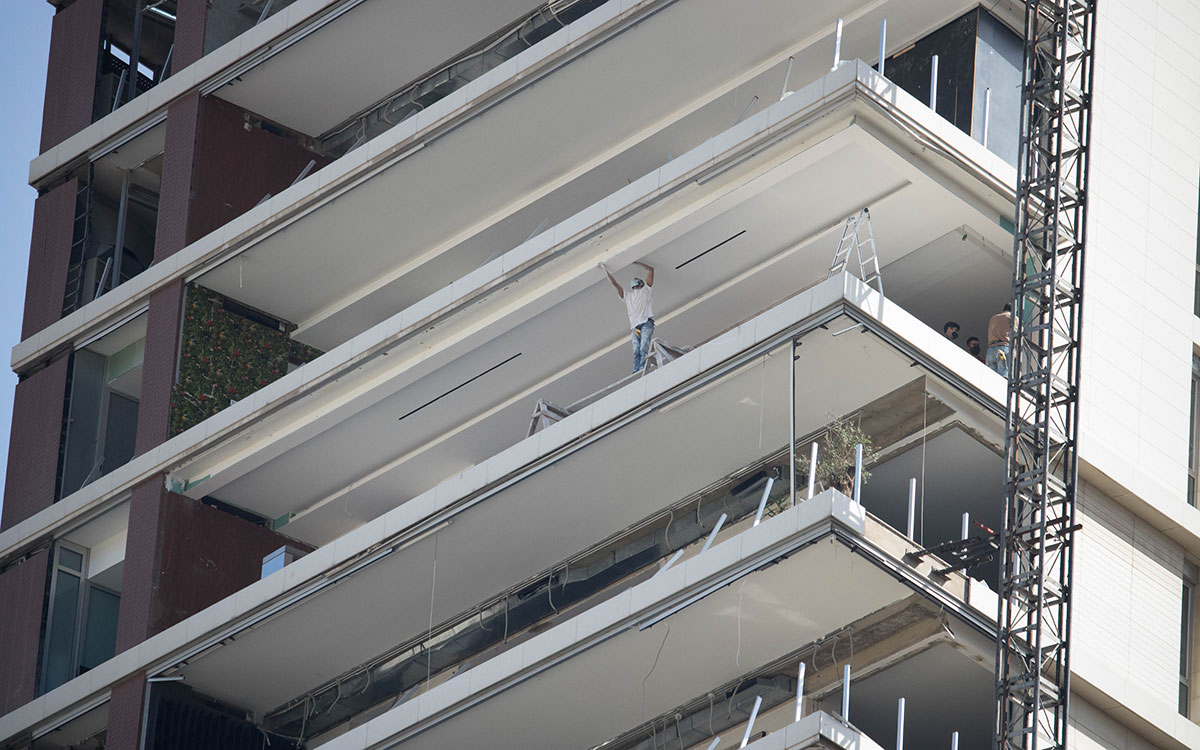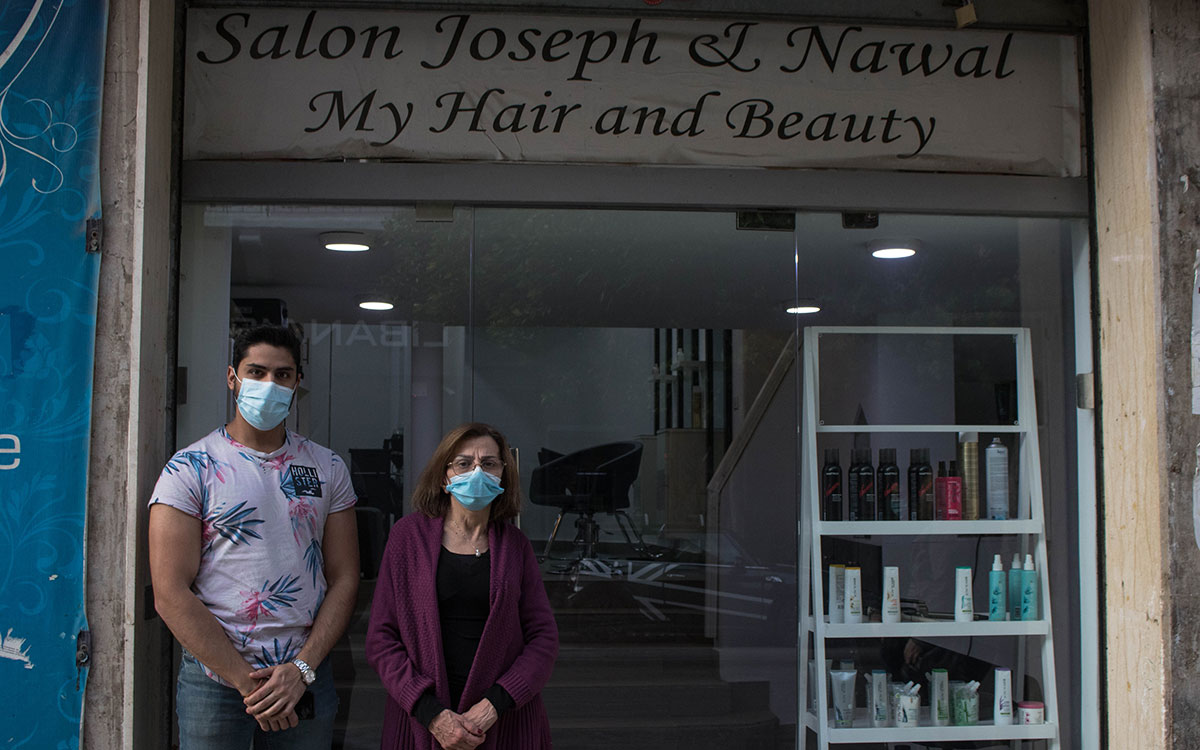Fear of gentrification spreads throughout the areas affected by the Beirut blast, months after the catastrophe.
Nawal Abou Jaoude and her son Maher are among those who had nowhere to go.
They survived the Beirut port blast that on August 4, 2020 killed 207 people, wounded thousands and left an estimated 300,000 homeless. The Abou Jaoude’s beauty shop, as well their home a floor above, at the corner of the small street on the side of the now ghostly Lebanon Electricity company, were damaged in the explosion.
“Our neighbor left. Her son died in the explosion, and she couldn’t deal with this place anymore,” Nawal told me.
In fact, Maher added, more than half of the residents who lived in the area simply left their houses, not because the buildings were beyond repair, but because they couldn’t deal with the trauma.
Before arriving at Nawal and Maher’s beauty shop, rows of buildings stood hollow and empty as I walked along the once lively Gemmeyzeh and Mar Mikhael neighborhoods of Beirut. Some were in the process of restoration, others still waiting for a savior to replace the large plastic sheets with new doors and windows. Others remain piles of rubble waiting for their fate to be decided.
And here and there, small shops just like this 5 decades old Abou Jaoude salon, have opened to the rare, occasional client.
“We will stay”, read several banners in both English and Arabic, on some of the hollow buildings. Banners like this showed up on many damaged buildings in the aftermath of the explosion, illustrating a sense of dogged resilience in the face of disaster.
But, months after the tragedy, the “We are staying” banners were torn and twisted by wind. There was no one inside to answer the big question: why stay when so many leave?
Nawal’s answer was sharp and bitter: “We can’t leave here. My house is here. My work is here.”
Fear of displacement
It was fear, not determination that led residents to put up signs and graffiti saying “We are not leaving,” “We’re staying” and “This is our space”, explained Mona Harb, a professor of urban studies and politics at the American University in Beirut.
“If some people are doing it [putting up signs] in defiance, I didn’t sense that at all”.
“It’s more a resignation and a sense we’re here and we will rebuild, but there is a crushed hope,” Harb said.
After the port explosion, a sense of fear spread throughout the affected areas due to pressure from landlords affected by the economic crisis, or real estate developers looking to rebuild the area in a way that would more suit the wealthy.
“From what I know from very preliminary fieldwork we were able to conduct in these neighborhoods is that people are fearing being evicted from their homes or from their businesses by their own landlords,” Harb told NOW.
Some residents and businesses have faced pressure from their landlords who are trying to get them to leave by either refusing to repair the property or by demanding the rent in dollars, something few Lebanese have easy access to.
Naji Raji, the founder of Save Beirut Heritage, claims that another impetus for the hoisting of the signs was the large presence of the younger generation in the area, who might have encouraged older residents to resist repeating the same mistake as in the 1990s, when many sold their properties to Solidere after the end of the Civil War instead of fighting to keep their homes.
“Two aspects between two generations helped in the movement after the August explosion. The young generation who loves and is attached to the spaces that they lost in their city,” Raji told NOW.
Old wounds reopen
Though 40 years have passed since the end of the Lebanese Civil War, old political wounds that have never healed properly reopened in the wake of the August 4 disaster.
Raji explained that renters and owners who lived through the reconstruction of Beirut Central District by Solidere fear gentrification – replacing the old bohemian neighborhood with expensive development projects that raise the cost of living in the neighborhood. Solidere, the construction company created by former Prime Minister Rafik Hariri in 1994 as a public-private partnership in charge of redeveloping the Central District of Beirut after the end of the Civil War, was for many years at the heart of political controversies over the manner of expropriation and drastically raising rent prices in Downtown Beirut.
After the blast, residents became concerned that something similar would happen in the affected areas, and many would be forced from their homes due to investors buying up the properties. However, these fears quickly faded and were replaced with more general fears over displacement and eviction due to an inability to afford repairs or even being forced to confront the trauma caused by the blast on a daily basis.
“In my opinion, the fear is more about displacement and eviction. People leaving their homes and their businesses,” Harb said.
“They could be leaving this place or Lebanon completely. The difficulty of staying in a neighborhood where you are confronted every day to the memory and the trauma of what happened.”
However, unlike in the 90s, in lieu of the current economic disaster, most are unable to leave even if they wanted to.
What has changed
Following the Civil War, there was a lot of confidence in Rafik Hariri by investors to put money towards rebuilding Lebanon. Lebanese who left the country to escape the violence were able to come back and find work, further boosting the post-war economy. According to Harb, there was a general belief and determination to rebuild the country and stay.
Even following the 2006 war between Hezbollah and Israel, Harb said that these sentiments still existed.
“When I went to the south or when I went to Haret Hreik and we worked on post-war reconstruction, there was this defiance for rebuilding because we want to stay,” the university professor recalled. “There was an enormous amount of empathy and sympathy and support.”
Despite the messages in the banners that line the buildings, these feelings are no longer what animate people in the explosion aftermath.
“We’re very much hostage to the situation we’re in,” Harb stated. “Even with this message of ‘We are staying,’ you don’t feel that this is a message that is accompanied by hope and by excitement of rebuilding.”
Nicholas Frakes is a multimedia journalist with @NOW_leb. He tweets @nicfrakesjourno.


